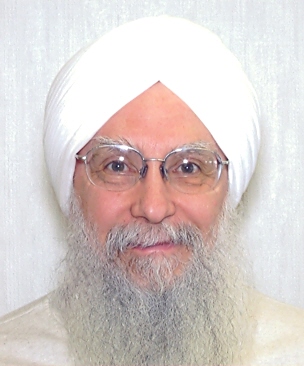by SS Dr. Sat Bir Singh Khalsa, Medway MA
Summer 2014
Scientific research on compassion and the role of meditation practices in enhancing it is now becoming a rigorous and acceptable field of inquiry within neuroscience. Feature articles on compassion research are beginning to appear in the premier research journal Science, in which a leading meditation/compassion researcher is quoted as saying “We are researching a system that is the opposite of fear, that allows us to go in peace, to trust ourselves and others more, that breeds tolerance.”
Although this field of research is in its infancy, preliminary findings suggest that meditation interventions such as the Mindfulness Based Stress Reduction (MBSR) program, which incorporate some yoga practice, have been shown to increase levels of self-compassion.
 In the words of Jon Kabat-Zinn, the creator of the MBSR program and a leader in the field of research in contemplative practices, “Through a seamless integration of mindfulness meditation and hatha yoga, MBSR taps into the innate potential for healing that we all have. It mobilizes our ability to cultivate embodied wisdom and self-compassion; and by so doing it teaches us to live our life and face whatever arises with integrity, clarity, and open-hearted presence.” (Yoga International Magazine, 2003)
In the words of Jon Kabat-Zinn, the creator of the MBSR program and a leader in the field of research in contemplative practices, “Through a seamless integration of mindfulness meditation and hatha yoga, MBSR taps into the innate potential for healing that we all have. It mobilizes our ability to cultivate embodied wisdom and self-compassion; and by so doing it teaches us to live our life and face whatever arises with integrity, clarity, and open-hearted presence.” (Yoga International Magazine, 2003)
Although there is currently little research on the capability of traditional yoga practices that incorporate meditation to enhance compassion, results from two preliminary studies are suggestive.
An 11-week elective course for Boston University medical students that incorporated regular yoga practices was shown to increase levels of self-compassion. This is an especially valuable finding, in that it is believed that compassion in healthcare practitioners has important benefits for both practitioners and patients.
A research study in Germany at the Yoga Vidya yoga center in the Sivananda tradition evaluated 160 individuals participating in a two-year long yoga teachers training program. The study reported increases in a measure of compassion over a six-month period.
About the Author
 SS Dr. Sat Bir Singh Khalsa is an ordained Sikh Dharma Minister. He is a researcher in the field of body mind medicine, specializing in yoga therapy. He is an Assistant Professor of Medicine at Harvard Medical School and an Associate Neuroscientist (since 1998) in the Division of Sleep and Circadian Disorders, at the Departments of Medicine and Neurology, Brigham and Women’s Hospital, in Boston Massachusetts. Since 2007, Sat Bir Singh Khalsa has served as the Director of Research at both the Kripalu Center for Yoga and Health in Massachusetts and the Kundalini Research Institute.
SS Dr. Sat Bir Singh Khalsa is an ordained Sikh Dharma Minister. He is a researcher in the field of body mind medicine, specializing in yoga therapy. He is an Assistant Professor of Medicine at Harvard Medical School and an Associate Neuroscientist (since 1998) in the Division of Sleep and Circadian Disorders, at the Departments of Medicine and Neurology, Brigham and Women’s Hospital, in Boston Massachusetts. Since 2007, Sat Bir Singh Khalsa has served as the Director of Research at both the Kripalu Center for Yoga and Health in Massachusetts and the Kundalini Research Institute.


